Mastering Project Management: Top 10 Methodologies Unveiled
- Jessica R.
- March 15, 2024
- Edited March 15, 2024
Table of Contents
In the ever-evolving world of business, where change is the only constant, mastering the art of project management is not just beneficial—it’s essential. With a plethora of projects underway at any given time, each boasting its own set of challenges, goals, and teams, it becomes critical to adopt a structured approach to ensure success and efficiency. This is where project management methodologies step in, offering a blueprint for project success. But with so many methodologies out there, how do you choose the right one for your project? Let’s dive deep into the top 10 project management methodologies to help you make an informed decision and lead your projects to triumphant completion.
1. Agile
Agile is a flexible, iterative approach that emphasizes continuous delivery and improvement, perfect for projects requiring adaptability and rapid changes. By breaking down the project into small, manageable chunks called sprints, Agile allows teams to adjust their plans based on feedback and changes without losing momentum. This methodology fosters collaboration and customer satisfaction, making it a go-to for software development and other dynamic projects.
2. Scrum
Scrum, a subset of Agile, focuses on delivering value in the shortest time by dividing the project into fixed-length iterations known as sprints, usually two to four weeks long. With roles clearly defined as Scrum Master, Product Owner, and Team Members, Scrum encourages regular updates and feedback loops through daily stand-up meetings, sprint reviews, and retrospectives. This structure ensures transparency, quick adjustments, and a steady pace toward the project goals.
3. Kanban
Kanban, another Agile-inspired methodology, emphasizes workflow visualization and efficiency. By using a Kanban board, teams can see the status of every task at any given time, from “To Do” to “Done.” This visibility helps in identifying bottlenecks and ensuring a smooth, continuous flow of work. Kanban is highly adaptable and can be integrated with other project management methodologies to enhance flexibility and responsiveness.
4. Lean
Lean methodology is all about maximizing value while minimizing waste—be it time, resources, or effort. Originating from manufacturing, Lean focuses on streamlining processes, improving quality, and delivering more with less. By identifying and eliminating non-value-adding activities, teams can focus on what truly matters, leading to more efficient project delivery and higher customer satisfaction.
5. Waterfall
Waterfall is a sequential, linear approach to project management, where each phase must be completed before moving on to the next. This methodology is best suited for projects with well-defined requirements and no expected changes, such as construction or manufacturing. Its clear structure and milestones make it easy to understand and manage, ensuring a systematic progression towards project completion.
6. PRINCE2
PRINCE2 (Projects IN Controlled Environments) is a process-driven methodology that offers a detailed, step-by-step approach to project management. With a strong emphasis on organization, control, and quality, PRINCE2 divides projects into manageable stages, each with its own plans and processes. This method is ideal for large, complex projects that require rigorous management and documentation.
7. Six Sigma
Six Sigma focuses on quality improvement by identifying and removing the causes of defects and minimizing variability in processes. It combines quality management with statistical analysis, using two sub-methodologies: DMAIC (Define, Measure, Analyze, Improve, Control) for existing processes and DMADV (Define, Measure, Analyze, Design, Verify) for new projects. Six Sigma is widely used in manufacturing, finance, healthcare, and other industries seeking high levels of quality and efficiency.
8. PMBOK
The Project Management Body of Knowledge (PMBOK) isn’t a methodology per se but a set of standard terminologies and guidelines for project management. Published by the Project Management Institute (PMI), PMBOK covers key processes and best practices across various project management methodologies. It’s a comprehensive resource for professionals looking to ensure their projects meet industry standards and best practices.
9. Critical Path Method (CPM)
The Critical Path Method focuses on identifying the longest stretch of dependent tasks and scheduling them to minimize project duration. By calculating the earliest and latest that each task can start and finish without delaying the project, CPM helps managers allocate resources efficiently and predict project timelines accurately. This methodology is particularly useful for projects with complex task dependencies, such as construction or research projects.
10. Agile Project Management (APM)
Agile Project Management takes the principles of Agile and applies them across the project management life cycle. APM is more of an overarching approach that incorporates various Agile frameworks, like Scrum and Kanban, to enhance flexibility, collaboration, and responsiveness. It’s best suited for projects in fast-paced environments that require frequent adjustments and stakeholder involvement.
Conclusion
Choosing the correct project management methodology can significantly impact the success of your projects. It’s crucial to consider the nature of your project, your team’s working style, and the desired outcomes when deciding which methodology to adopt. Whether you prefer the flexibility of Agile and its derivatives, the control and structure of Waterfall and PRINCE2, or the efficiency-focused approaches like Lean and Six Sigma, each methodology has its unique strengths and applicability. By understanding and leveraging these methodologies, you can guide your projects to successful conclusions, optimize your resources, and achieve your business objectives with precision and efficiency. Remember, the best methodology is the one that works for your project, team, and goals. Here’s to managing your projects with skill and achieving great results!

Jessica R.
Jessica is a seasoned GMP compliance consultant and technical writer specializing in pharmaceutical manufacturing, data integrity, and quality assurance. With over 12 years of experience working with global pharmaceutical firms, Jessica brings deep industry insights into FDA, EMA, and MHRA regulations.
